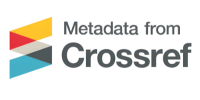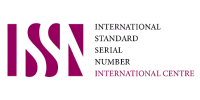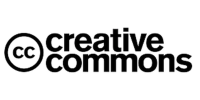Feminist Discourse in Modern Literary Theory
DOI:
https://doi.org/10.25215/31075037.007Keywords:
Feminist Literary Criticism, Gender Representation, Intersectionality, Literary Theory, Power DynamicsAbstract
Modern literary criticism adopted new analytical directions through the arrival of feminist discourse because it allows researchers to investigate gender structures and power dynamics in their scholarly works. Literary criticism analyzes female characters together with composition patterns influenced by gender-based power differences in literary works. The analysis assesses feminist theory by examining literary works produced by Virginia Woolf in her book Mrs. Dalloway and Toni Morrison in Beloved and Chimamanda Ngozi Adichie through Americanah. Through the combination of liberal feminism with radical feminism and an intersectionality approach both social analysis and text evaluation produce advanced methods. Mrs. In Mrs. Dalloway Virginia Woolf presents Clarissa Dalloway as a narrative symbol who objects to Victorian expectations for feminine conduct. The present age demands that people maintain rights to share their thoughts since liberal feminism acknowledges the constrained range of female selections. As Lisa Rappaport explains through radical feminist analysis patriarchy functions as a universal system that stops women from gaining freedom and undermines their attempts to establish independence. By analyzing Beloved through intersectional feminist theory this paper demonstrates how racial components establish parallel relations with gender elements and historical context. In her works Morrison depicts African-American women who metaphorically combat dual oppressions based on gender and race. Onset of Sethe's story allows scholars to understand central themes in Beloved while uncovering various ways black women suffered at the hands of slavery. The terminal assessment material involves Americanah by Chimamanda Ngozi Adichie which uses immigration and globalization perspectives to study gender identity. The process of her cultural transition between Nigeria and America prompts Ifemelu to experience evaluations both from liberal feminist and radical feminist perspectives. Through her use of enduring feminist concepts about physical standards and racial elements and cultural differences Adichie demonstrates why literary research needs feminist study to remain essential today. Analytical demonstrations in the study establish how feminist literary analysis allows researchers to identify gender structures and power mechanisms by using various analytical tools for literary interpretation. The literary study of the future stands on fundamental feminist discourse principles to function properly since feminist theory acts as both an analysis tool for gender terms in literature and a research method development tool across diverse historical and cultural contexts. Literary scholars identifying diverse textual presentations that represent multiculturalism can do so by referring to feminist theory in analyzing past scholarly findings.Modern literary scholarship draws its energy from feminist theory as its application produces broad intellectual discussions about feminist theory.












